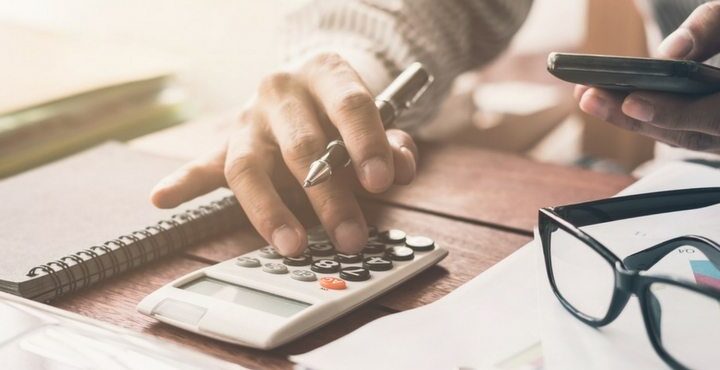Should I Buy or Lease My New Business Vehicle?
TurboTax Canada
September 30, 2020 | 5 Min Read
Updated for tax year 2024

As a self-employed individual, deciding whether to buy or lease a car for your business may not be so easy to figure out. However, a good place to start is understanding the financial and tax implications of each option.
When it comes to using a vehicle for business, the Canada Revenue Agency (CRA) allows you to deduct the business portion of various motor vehicle expenses, such as gas, oil, insurance, parking fees, registration fees, lease payments, repairs, tires, and loan interest.
Whether you lease or buy a car for business, the deductions available to you over time can be quite similar. However, the right choice depends on your specific financial situation and business needs. This article will help you navigate the tax benefits and drawbacks so you can make an informed decision.
Key takeaways
1. You can deduct the business-use percentage of expenses whether you buy or lease a vehicle, with similar deductions available over time.
2. Leasing a vehicle allows for deductible lease payments up to $1,050 per month before taxes, with restrictions on luxury cars.
3. Buying a vehicle lets you deduct depreciation through capital cost allowance (CCA), with specific limits based on vehicle type and cost.
How leasing vs. buying a car affects taxes
You can deduct the business percentage of your lease payments. For leased vehicles in 2024, the maximum monthly lease payment you can deduct before taxes has increased to $1,050, which totals up to $12,600 ($1,050 x 12 = $12,600) in tax-deductible expenses annually. This increase is an important consideration when deciding whether to buy or lease your business vehicle.
For example, if your yearly lease payment is $4,200 ($350 per month) and your business use percentage is 80%, you may be able to deduct $3,360 on your tax return for that year. While this is beneficial, keep in mind that the CRA limits the depreciation on “luxury” cars and also imposes limits on lease payments for such vehicles.
For example, vehicles that cost $37,000 and above (before taxes) in Canada are now considered luxury vehicles under CRA guidelines for 2024. Be sure to factor this into your decision when choosing whether to lease or buy your car.
Generally, leasing can offer better tax benefits as the vehicle price increases—up to, but not exceeding, the luxury limit.
To estimate your potential deductions, you can use the CRA’s Chart C, which provides detailed calculations.
Buying from a tax perspective
Some expenses differ between purchased and leased vehicles, with the most significant difference being the interest that can be deducted when a vehicle is purchased vs. leased. If you decide to buy your business vehicle outright, the cost of your car is deducted at a rate set by the CRA, known as capital cost allowance (CCA), or depreciation.
This is different from leasing because when you lease a car, you don’t own it, so you can’t depreciate its value or claim any CCA.
Vehicles fall into different CCA classes depending on their type.
Class 10: This class includes passenger vehicles costing $37,000 or less before taxes, such as standard sedans and compact cars.
Class 10.1: This class includes motor vehicles that are not considered passenger vehicles and typically cost more than $37,000, such as larger SUVs or specialty vehicles.
Class 16: This class includes trucks, such as pickup trucks and cargo vans used for business purposes.
Class 54: This class includes zero-emission passenger vehicles (ZEPV) that would typically fall into Class 10 or 10.1, such as electric sedans and compact cars.
Class 55: This class includes zero-emission vehicles that would usually be classified under Class 16, such as electric trucks and larger electric commercial vehicles.
For example, if you purchase a passenger car, new or used, for $37,000 or less before taxes, you will use Class 10 to depreciate 30% of its value annually. In the first year of business use, you can deduct 15% of the cost, and then 30% of the declining balance for each subsequent year until you’ve claimed 100% of the car’s cost. If you start using the car for business after a few years of ownership, you will need to estimate the fair market value (FMV) of the car in the year you’re claiming CCA, rather than using the original purchase cost.
If you purchase a passenger vehicle that fits into Class 10 but costs more than $37,000, you won’t be able to claim the excess amount paid. You can still claim CCA on $37,000, plus tax. Additionally, if you took out a loan to buy the car, you can now deduct the interest paid on the loan up to a maximum of $350 per month, as determined by the CRA.
Don’t forget, if you purchase the vehicle, you can also deduct the interest on the vehicle’s loan based on the percentage of time it’s used for your business.
For detailed depreciation rates for the above classes, refer to the CRA's guidelines.
Leasing your personal vehicle to your business
If you already own a vehicle personally and want to use it for your business, you might consider leasing your personal vehicle to your business. This can be done, but it requires careful documentation and adherence to tax regulations. The lease payments made by your business to you can be deducted as a business expense, but you must report the lease income on your personal tax return. Additionally, you won't be able to claim CCA on the vehicle in this scenario, as the vehicle is not owned by the business.
While this arrangement allows you to benefit from lease deductions, it's important to consult with TurboTax experts to ensure that the lease terms are reasonable and align with CRA guidelines.
Rules on claiming CCA for leased vehicles
The guidelines here are simple: You cannot claim CCA on a leased vehicle. CCA is reserved for assets that your business owns. Since leasing a vehicle means the car is not owned by your business, you cannot depreciate its value or claim CCA. Instead, the primary tax benefit of leasing comes from deducting the lease payments as a business expense.
To recap, both leasing and buying a car for your business offer valuable tax benefits for self-employed individuals. The best choice depends on your business needs, financial situation, and how you plan to use the vehicle. Leasing may be more beneficial for higher-value cars and those who prefer lower upfront costs while buying can offer long-term benefits through depreciation and interest deductions.
Timing is everything
As with many business decisions, timing can have a significant impact when it comes to purchasing or leasing a vehicle. For instance, buying your business vehicle on December 31 of any year will yield the same deduction as if you had purchased it on January 1. This is because the CRA’s half-year rule limits your CCA claim to 50% of the annual rate in the first year, regardless of when in the year you acquire the vehicle. This means the timing of your purchase doesn’t affect the amount of CCA you can claim in the first year, making year-end purchases just as effective as those made earlier in the year.
Leasing, however, operates differently. If you enter into a lease agreement earlier in the year, you’ll make more payments within that year, leading to a higher deductible amount. Conversely, if you sign a lease contract in December, you won’t have made any payments by year-end, resulting in no deductions for that year. Therefore, the timing of when you lease a vehicle can significantly impact your deductions for that tax year.
Another key consideration is what happens when you sell or return the vehicle. If you own a business vehicle and decide to sell it, you may have a taxable gain or a deductible loss. Any gain that results from depreciation (called recaptured depreciation) is treated as regular income and taxed.
For example, if you bought a car for $10,000 and claimed $7,000 in depreciation ($10,000 - $7,000 = $3,000), selling it for $5,000 would mean $2,000 is taxed as regular income ($5,000 - $3,000 = $2,000).
In contrast, when you return a leased vehicle at the end of the lease term, there’s no taxable gain or loss, simplifying your tax situation.
Other factors to consider
While taxes are important, they shouldn’t be the only consideration when deciding whether to lease or buy a business vehicle. Here are a few other factors to keep in mind:
Mileage. Leased cars often come with mileage limits, typically around 24,000 kilometres per year. Exceeding this limit can result in extra fees, so consider your annual driving habits before leasing.
Vehicle longevity. Think about how long you plan to keep the vehicle. If you prefer driving a new car every 3 to 4 years, leasing might be more appealing. However, if you intend to keep the vehicle until it’s no longer serviceable, buying could be more cost-effective in the long run.
Monthly payments. Lease payments are usually lower than monthly payments on a car loan. If managing cash flow is a priority, leasing could be a more attractive option.
There’s no definitive answer to whether leasing or buying is better for small business owners. Generally, buying tends to be more cost-effective over time, though the immediate tax deduction may be lower.
If you reimburse yourself using a per-kilometre allowance from your corporation, it can reduce paperwork (note that unincorporated businesses cannot use this method). However, in a year with high operating expenses, such as repairs, you might miss out on a higher deduction.
If you’re comfortable with spreadsheets or use accounting tools like QuickBooks, tracking both methods and choosing the most beneficial one can help ensure the lowest tax liability at the end of the year.
Manage business expenses with confidence
As a self-employed individual, deciding whether to buy or lease a car for your business may not be so easy to figure out. However, a good place to start is understanding the financial and tax implications of each option.
When it comes to using a vehicle for business, the Canada Revenue Agency (CRA) allows you to deduct the business portion of various motor vehicle expenses, such as gas, oil, insurance, parking fees, registration fees, lease payments, repairs, tires, and loan interest.
Whether you lease or buy a car for business, the deductions available to you over time can be quite similar. However, the right choice depends on your specific financial situation and business needs. This article will help you navigate the tax benefits and drawbacks so you can make an informed decision.
Related articles

© 1997-2024 Intuit, Inc. All rights reserved. Intuit, QuickBooks, QB, TurboTax, Profile, and Mint are registered trademarks of Intuit Inc. Terms and conditions, features, support, pricing, and service options subject to change without notice.
Copyright © Intuit Canada ULC, 2024. All rights reserved.
The views expressed on this site are intended to provide generalized financial information designed to educate a broad segment of the public; it does not give personalized tax, investment, legal, or other business and professional advice. Before taking any action, you should always seek the assistance of a professional who knows your particular situation for advice on taxes, your investments, the law, or any other business and professional matters that affect you and/or your business.









